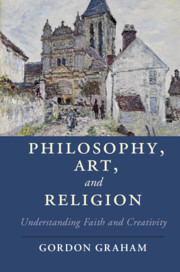6 - Rethinking the Sacred Arts
Published online by Cambridge University Press: 06 August 2018
Summary
One of philosophy's most important and distinctive tasks is the critical exploration of tacit assumptions. It is characteristic of the philosophical cast of mind that it finds questions to ask and issues to raise that a different cast of mind would be inclined to regard as pointless, and at best a waste of time. That is why people quite often find philosophy's seemingly interminable debates not only worthless, but frustrating.
This response to philosophy is ancient. It receives powerful articulation in some of Plato's dialogues. Socrates's interlocutors often give voice to their irritation and exasperation with his dialectical questions. As Plato appreciates, there is good reason for their reaction. For the most part the activities human beings engage in can only be pursued if certain things are taken for granted. To be constantly questioning the presuppositions on which thought and action proceed is to invite both ignorance and paralysis. Philosophy, Socrates's critics often allege, is a properly valuable educational exercise for young men (they gave no thought to women on this matter), but only before the serious business of life begins. Something has gone wrong, accordingly, when a man of Socrates's years persists with it. Life has to be lived, and this means moving on, leaving the student debating club in the philosophical ivory tower to a new generation.
On the other hand – as Plato also sees – from time to time the presuppositions within which we operate distort our ways of thinking and acting. They blind us both to their inherent inadequacies, and to the opportunities that would open up if we were to operate with different presuppositions. There is no denying that it is essential to make some assumptions as we go about our daily business. But what these assumptions are matters. Some will undoubtedly be fundamental truths that no sane person could sensibly deny. Others, though, may only be supposed “truths,” propositions, and conceptions that rest on nothing more substantial than unquestioning acceptance, an acceptance that is widespread only because it goes unquestioned. In these circumstances, philosophy can provide the invaluable service of enabling us first to identify what our assumptions are, and then rethinking them.
The purpose of this book has been precisely that.
- Type
- Chapter
- Information
- Philosophy, Art, and ReligionUnderstanding Faith and Creativity, pp. 158 - 164Publisher: Cambridge University PressPrint publication year: 2017

